ISLAMABAD: Saudi Arabia’s stall, comprising a traditional Bedouin tent with the rich aroma of ‘gahwa’ and the sweetness of dates, on Sunday stole the spotlight at the Pakistan Foreign Office Women’s Association (PFOWA) charity bazaar, which showcased a vibrant tapestry of cultural performances, traditional costumes, music, art and food from various embassies and missions in Pakistan.
Pakistan’s deputy prime minister and foreign minister, Ishaq Dar, inaugurated the bazaar at the Ministry of Foreign Affairs (MoFA) on Sunday. The event featured stalls from various countries as well as from Pakistani small and medium enterprises to raise funds for low-income MoFA staff.
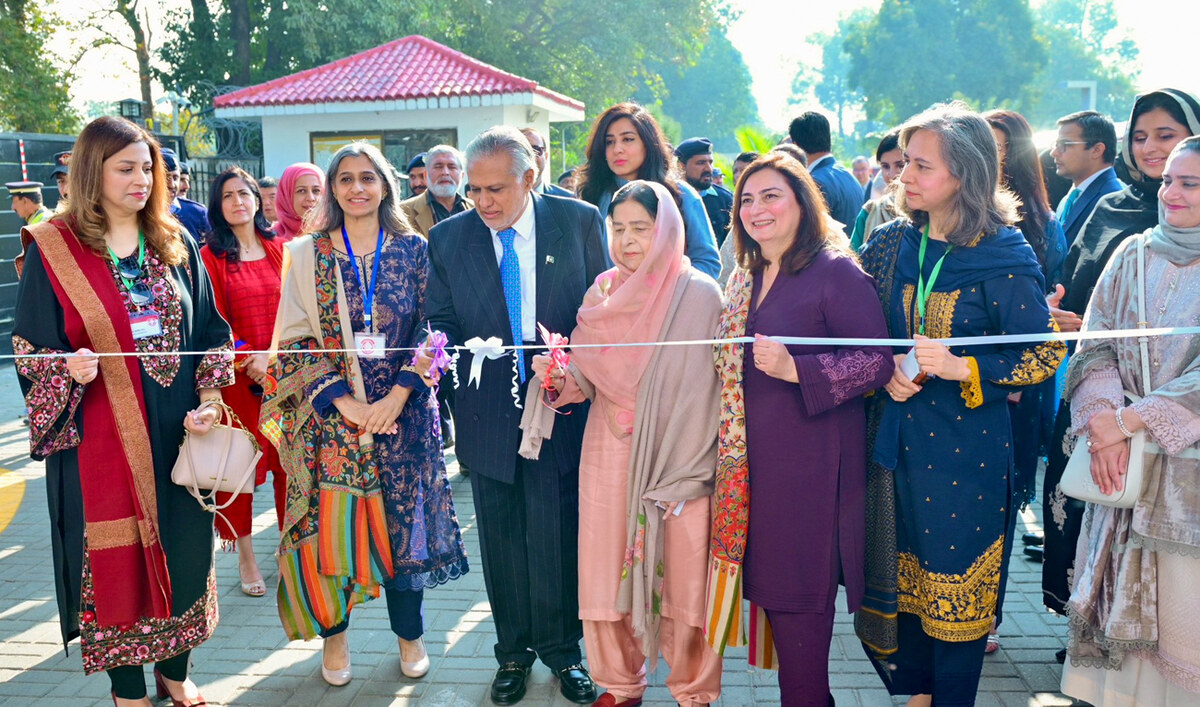
Pakistan Deputy Prime Minister Ishaq Dar inaugurates Annual Charity Bazaar 2024, organized by Pakistan Foreign Office Women’s Association, in Islamabad on December 1, 2024. (Photo courtesy: MOFA)
At the entrance of the bazaar, the very first stall was set up by the Embassy of Saudi Arabia that featured a traditional Bedouin tent where visitors were welcomed with dates and gahwa, a traditional Arabic coffee.
“It is a very welcoming gesture by the Saudi embassy as they introduced us to the true taste of Saudi coffee which is very unique,” Tayyaba Aleem, a visitor, told Arab News, adding the traditional setting of the tent added an authentic cultural touch and made it a special experience.
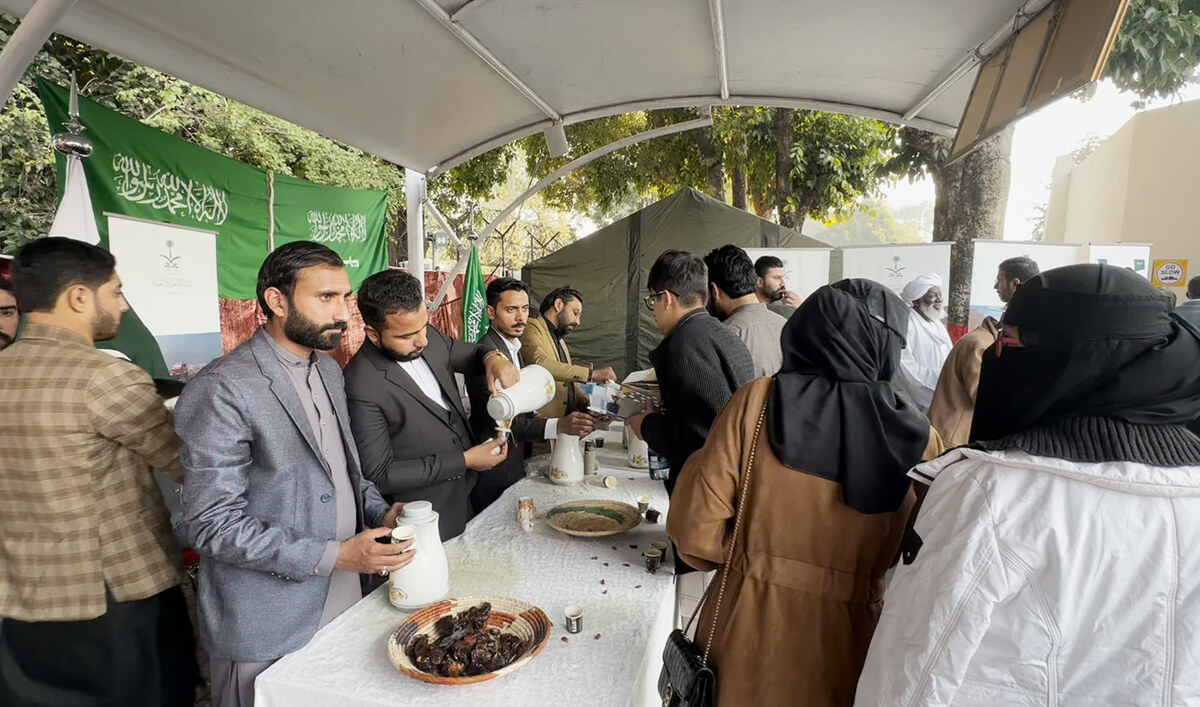
Participants serve Saudi dates and gahwa to visitors at the Pakistan Foreign Office Women’s Association charity bazaar in Islamabad on December 1, 2024. (AN Photo)
In his inaugural address, Dar said the event offered a unique opportunity for people to visit the Pakistani Foreign Office, and experience rich cultures of various countries through their food and handicrafts, and to contribute to a charitable cause.
“Today’s bazaar is a captivating blend of diverse cultures and the variety of experiences fostering harmony and fraternity among different nations,” he said, adding that from the kind support and donations to setting up stalls showcasing traditional outfits, apparel, artifacts and a variety of delights, the event was a collective celebration of diversity and inclusion.
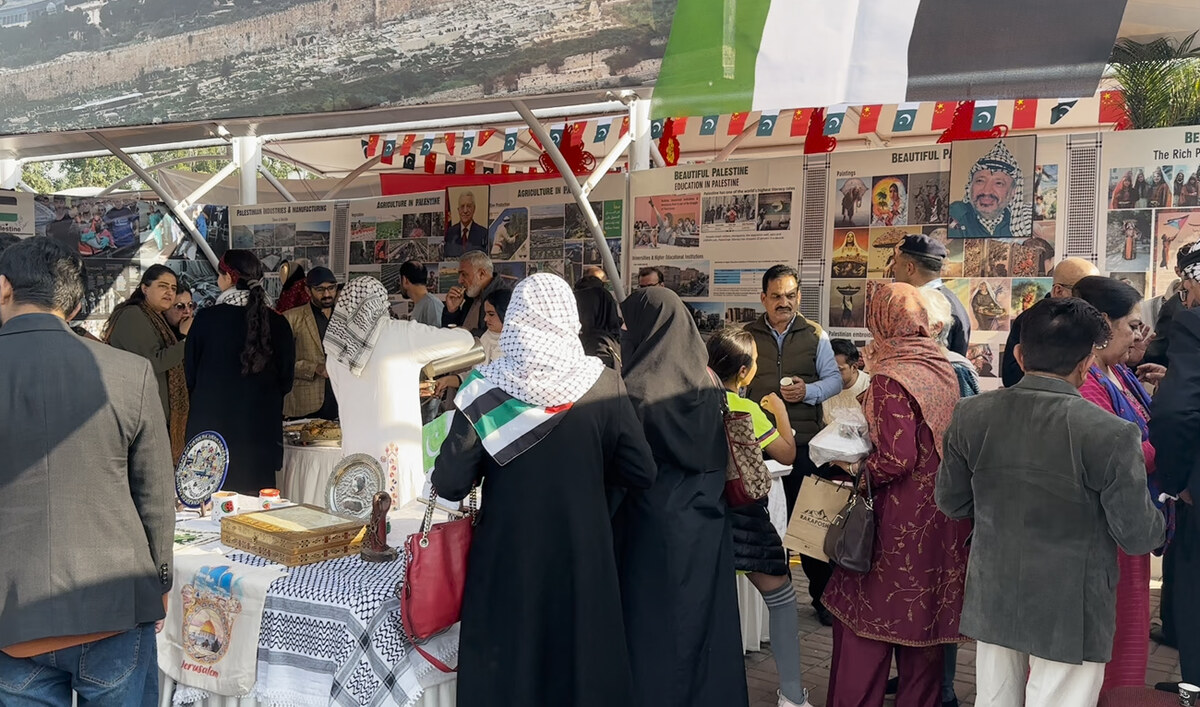
This photo shows general views of Palestinian stall at the Pakistan Foreign Office Women’s Association charity bazaar in Islamabad on December 1, 2024. (AN Photo)
“I am extremely grateful to the diplomatic missions in Islamabad and their contributions in this colorful event.”
Diplomats described the experience as a valuable opportunity to showcase their country’s cultural heritage, while learning about the traditions of others.
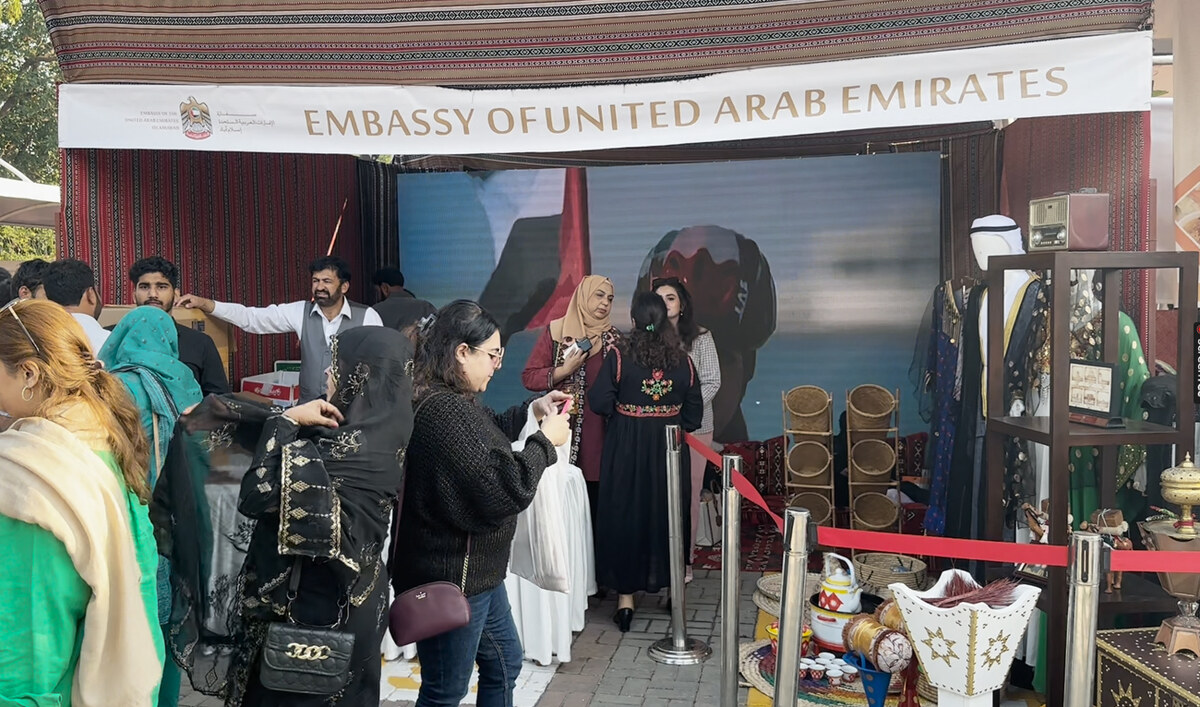
This photo shows general views of the UAE stall at the Pakistan Foreign Office Women’s Association charity bazaar in Islamabad on December 1, 2024. (AN Photo)
“It is a multilateral event and it brought a lot of things in for the participants, and for the visitors,” Muhammad Motahar Al-Ashabi, the ambassador of Yemen to Pakistan, told Arab News.
He said the Yemeni stall showcased pictures of his country’s rich heritage, including its architecture, culture and food.
“This display is a symbolic participation, but we have received a very good response from the visitors,” the ambassador added.
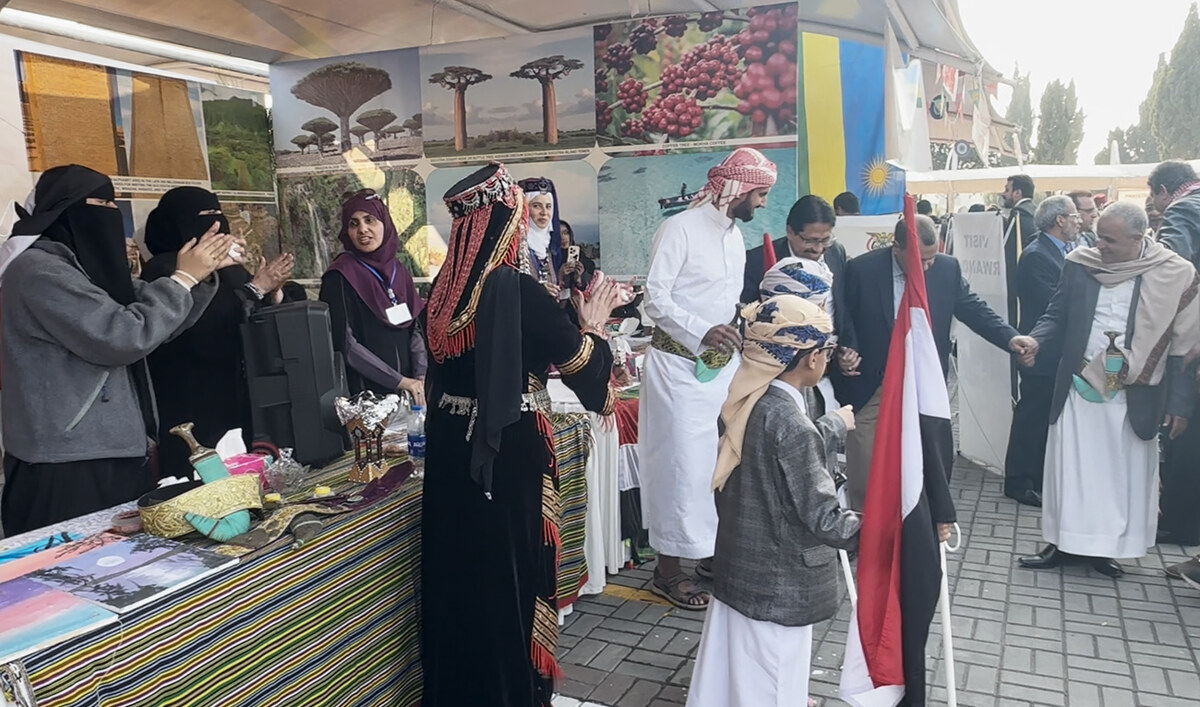
This photo shows general views of Yemeni stall at the Pakistan Foreign Office Women’s Association charity bazaar in Islamabad on December 1, 2024. (AN Photo)
Turkish Ambassador to Pakistan Irfan Neziroglu commended the PFOWA for providing a “wonderful opportunity” to engage with other diplomats and Pakistani people through the event.
“We brought a variety of authentic products, mostly from Turkiye, including traditional food, and received many visitors at our stall,” he told Arab News.
“We also visited the stalls of other embassies and a kind of cultural richness we see here, not only different countries, but also the richness of Pakistan, from different parts of the country.”
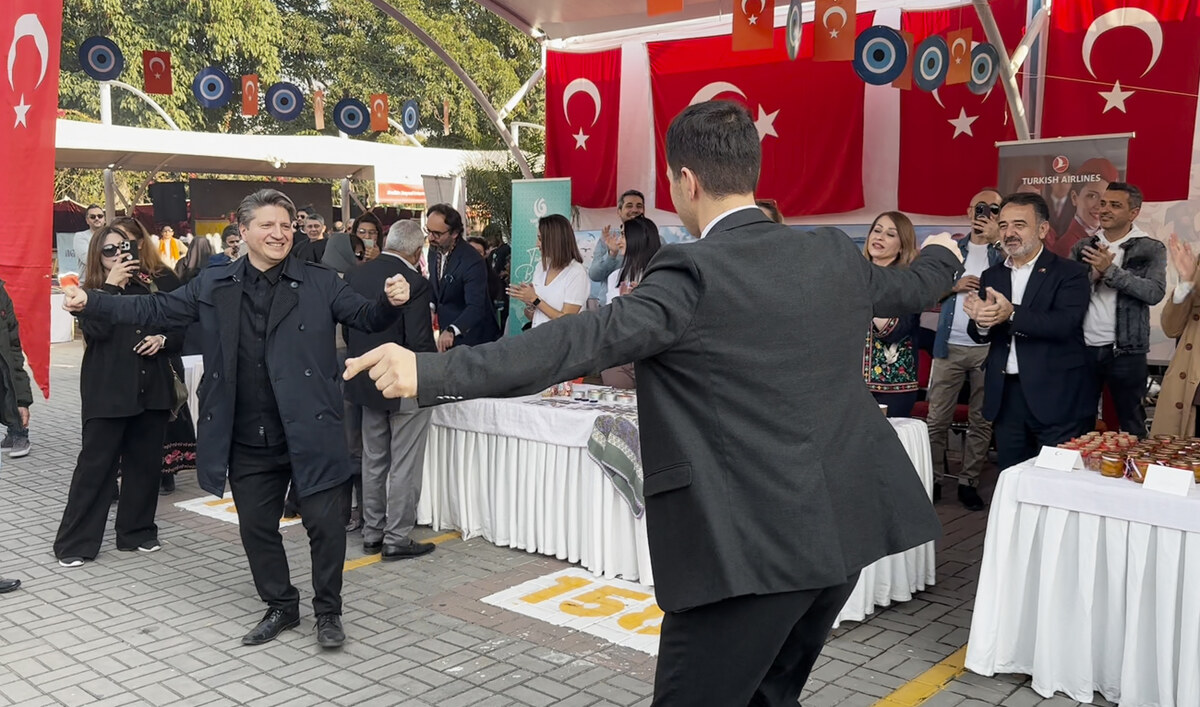
This photo shows general views of Turkish stall at the Pakistan Foreign Office Women’s Association charity bazaar in Islamabad on December 1, 2024. (AN Photo)
Basma Al-Masharqa, a Palestinian woman residing in Islamabad, also set up a stall, featuring traditional Palestinian cuisine.
“I prepare Palestinian food and all is handmade in my home,” she told Arab News. “For small businesses like us, it is so nice because many people, they are coming here and they see our work.”
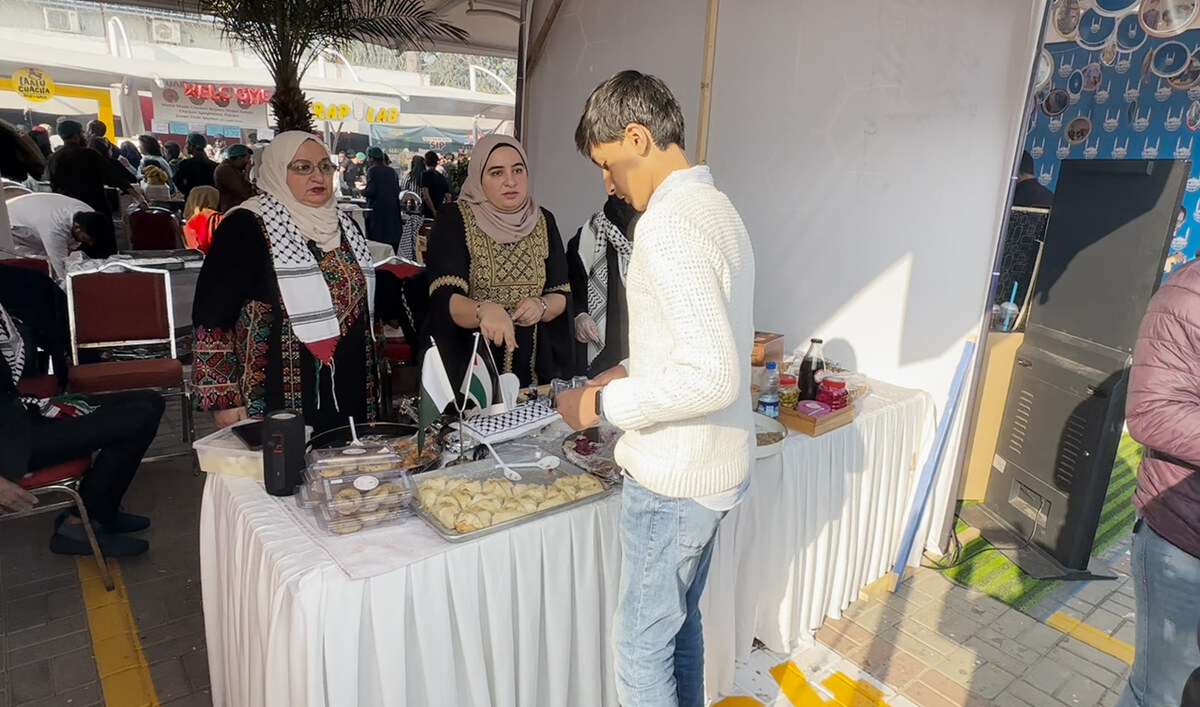
Basma Al-Masharqa (1L), a Palestinian woman residing in Islamabad, gestures at her food stall setup at the Pakistan Foreign Office Women’s Association charity bazaar in Islamabad on December 1, 2024. (AN Photo)
She said such events should be organized more frequently to help home-based businesses in the Pakistani capital.
“My mother used to cook this food and we are trying to bring our traditional culture to the Pakistani market,” Basma’s daughter, Maryam, told Arab News, saying it was a “great place” to present the Arabic food as it brought together diverse communities.

Visitors writing messages in solidarity with Gaza at the Palestinian stall at the Pakistan Foreign Office Women’s Association charity bazaar in Islamabad on December 1, 2024. (AN Photo)
Amina Amir from Algeria praised the diversity of cultures presented at the event, hoping that Algeria would also participate next year to showcase her country’s rich heritage.
“As the largest country in Africa, we have diverse traditions and cultures that we would love to present,” she said. “It is a very good initiative as this is my second time attending this bazaar as I like to see the variety of different cultures and different countries.”
















